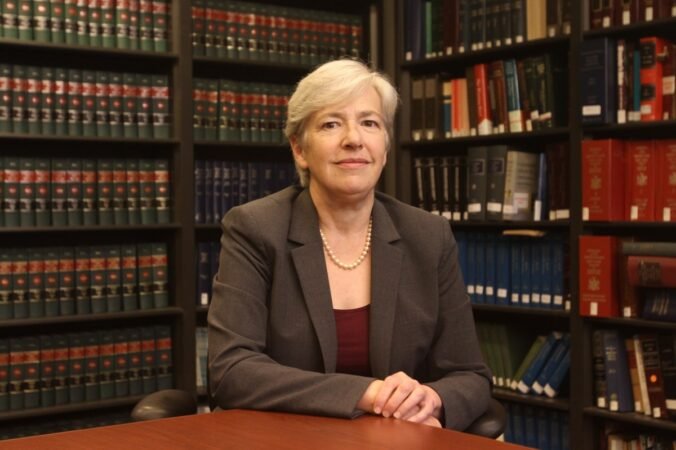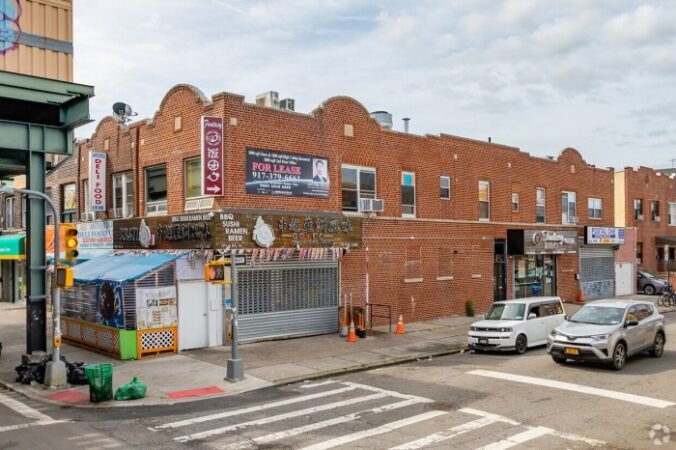
Navigating the complexities of family law can be overwhelming, especially within the diverse landscape of Brooklyn, NY. From divorce and child custody disputes to complex issues involving blended families and same-sex couples, the legal challenges are unique and require specialized expertise. This guide provides a comprehensive overview of Brooklyn family law, offering insights into the process, available resources, and the crucial role of experienced attorneys in achieving favorable outcomes.
Understanding the nuances of Brooklyn’s legal system is paramount. This includes familiarity with local courts, procedures, and the specific laws governing family matters within the borough. Finding the right attorney, one who understands your specific circumstances and can effectively advocate for your interests, is a critical first step in navigating this often emotionally charged journey. This resource aims to equip you with the knowledge and tools to make informed decisions and secure the best possible legal representation.
Understanding Brooklyn Family Law
Navigating family law matters can be complex, and understanding the specifics within the unique context of Brooklyn, NY, is crucial for residents facing such challenges. Brooklyn’s diverse population and high population density contribute to a high volume of family law cases, resulting in specific legal considerations and procedures. This section will explore the key aspects of Brooklyn family law, providing clarity on various case types and common issues.
Types of Family Law Cases in Brooklyn
Brooklyn family law courts handle a broad spectrum of cases involving family relationships. These include, but are not limited to, divorce proceedings, child custody and visitation disputes, child support determinations, spousal support (alimony) arrangements, and domestic violence cases. The legal processes involved vary significantly depending on the specific circumstances of each case and the individuals involved. Judges in Brooklyn Family Court are experienced in handling a wide range of emotionally charged situations, requiring careful consideration of all parties’ interests.
Common Family Law Issues Faced by Brooklyn Residents
Brooklyn residents frequently encounter several common family law issues. High property values in certain neighborhoods can lead to complex property division disputes in divorce cases. The diverse cultural backgrounds within Brooklyn often influence child custody arrangements and visitation schedules, necessitating culturally sensitive legal approaches. Furthermore, the high cost of living in Brooklyn can significantly impact child support calculations and the ability of parties to meet their financial obligations. Cases involving high-net-worth individuals also require specialized legal expertise to ensure equitable asset division.
Comparison of Family Law Case Types
The following table offers a general comparison of different family law case types, their typical timelines, and associated costs. It is important to note that these are estimates, and actual timelines and costs can vary significantly depending on the complexity of the case, the level of cooperation between parties, and the specific legal representation involved. Contested cases, for example, typically take longer and are more expensive than uncontested cases.
| Case Type | Typical Timeline | Typical Cost Range | Factors Influencing Timeline/Cost |
|---|---|---|---|
| Divorce (Uncontested) | 3-6 months | $3,000 – $10,000 | Level of agreement between spouses, complexity of assets |
| Divorce (Contested) | 6-18 months or longer | $10,000 – $50,000+ | Level of conflict, complexity of assets, need for expert witnesses |
| Child Custody | 3-12 months | $5,000 – $25,000+ | Level of parental conflict, need for evaluations (psychological, forensic) |
| Child Support | 2-6 months | $2,000 – $10,000 | Income of parents, number of children, child’s needs |
| Spousal Support (Alimony) | 3-12 months | $5,000 – $25,000+ | Income and earning capacity of spouses, length of marriage |
Finding the Right Attorney
Navigating the complexities of Brooklyn family law requires choosing the right legal advocate. The selection process should be thorough and informed, prioritizing several key factors to ensure you receive the best possible representation for your unique circumstances. A well-chosen attorney can significantly impact the outcome of your case, offering expert guidance and advocating effectively for your rights.
Choosing the right attorney involves careful consideration of their specialization, experience, communication style, fees, and overall suitability for your needs. The following sections will elaborate on these critical aspects to guide you in your search.
Attorney Specialization and Experience
Selecting an attorney specializing in family law is crucial. Within family law, further specializations exist, such as high-net-worth divorce, custody disputes, adoption, or domestic violence cases. Experience in handling cases similar to yours is vital. A lawyer with a proven track record in your specific area of concern will possess the necessary knowledge and expertise to navigate the intricacies of your situation effectively. For example, an attorney with extensive experience in high-conflict custody battles will be better equipped to handle such a case than one primarily focused on uncontested divorces. Reviewing an attorney’s case history, available on their website or through online legal directories, can provide valuable insights into their specialization and success rate.
Attorney-Client Communication and Accessibility
Effective communication is the cornerstone of a successful attorney-client relationship. A responsive and accessible attorney will keep you informed throughout the process, promptly answering your questions and addressing your concerns. Consider how readily available the attorney is, whether through phone calls, emails, or in-person meetings. A good attorney will establish clear communication channels and maintain consistent contact, providing regular updates on the progress of your case. The ability to easily reach your attorney and feel heard is critical for building trust and ensuring a smooth legal process. For instance, an attorney who responds to emails within 24 hours demonstrates a commitment to timely communication.
Attorney Fees and Payment Structures
Understanding the attorney’s fee structure is paramount. Fees can vary significantly depending on the attorney’s experience, the complexity of the case, and the services provided. Common fee structures include hourly rates, flat fees, and contingency fees. Hourly rates are the most common, where you pay for the attorney’s time spent on your case. Flat fees are a fixed amount for specific services, while contingency fees are dependent on the outcome of the case. It’s crucial to obtain a clear and detailed breakdown of fees upfront, including any potential additional costs. Don’t hesitate to negotiate fees or explore payment plans if necessary. For example, some attorneys may offer a reduced rate for pro bono work or for clients with limited financial resources.
Questions to Ask Prospective Attorneys
Before making a decision, it’s essential to ask prospective attorneys several key questions to assess their suitability for your case. These questions will help you gain a better understanding of their experience, approach, and communication style.
- What is your experience handling cases similar to mine?
- What is your fee structure, and what are the anticipated costs?
- How often will you communicate with me, and what methods of communication do you prefer?
- What is your strategy for handling my case, and what are my options?
- Can you provide references from previous clients?
- What is your availability, and how quickly can I expect a response to my inquiries?
- What is your approach to negotiation and litigation?
- What is your success rate in cases similar to mine?
Common Family Law Procedures in Brooklyn

Navigating the complexities of family law in Brooklyn can be daunting. Understanding the common procedures involved in divorce, child custody, and child support is crucial for anyone facing these legal matters. This section Artikels the key steps involved in each process.
Filing for Divorce in Brooklyn
The process of filing for divorce in New York, and thus in Brooklyn, begins with one spouse (the petitioner) submitting a summons and complaint to the court. The complaint details the grounds for divorce, such as irretrievable breakdown of the marriage (no-fault divorce), as well as requests regarding property division, spousal support (maintenance), and child custody. The other spouse (the respondent) is then served with these documents. The respondent must then file an answer, agreeing or disagreeing with the claims made in the complaint. Following this, the parties may engage in discovery, exchanging information and evidence relevant to the case. Depending on the circumstances and the agreement (or lack thereof) between the parties, the case may proceed to mediation, negotiation, or trial. A judge will ultimately issue an order of divorce once all issues are resolved.
Determining Child Custody and Visitation Schedules
In Brooklyn, as in all of New York, courts prioritize the best interests of the child when determining custody and visitation arrangements. This involves considering various factors, including the child’s wishes (if of a certain age and maturity), the parents’ parenting abilities, the child’s relationship with each parent, and the stability of each parent’s home environment. Custody arrangements can range from sole custody (one parent has primary decision-making authority) to joint custody (both parents share decision-making responsibilities), with varying degrees of physical custody (time spent with each parent). Visitation schedules are tailored to the specific circumstances of each case, aiming to create a consistent and predictable routine for the child. Judges may order supervised visitation in cases where there are concerns about a parent’s ability to provide a safe and nurturing environment.
Calculating Child Support Payments in Brooklyn
Child support calculations in Brooklyn are governed by New York State’s Child Support Standards Act (CSSA). The CSSA uses a formula that considers both parents’ incomes, the number of children, and the amount of time each parent spends with the child. The formula is designed to ensure that both parents contribute financially to the child’s support in proportion to their income. The calculation is often complex and can be affected by various factors, including extraordinary medical expenses or other unique circumstances. A deviation from the formula may be granted by the court if it’s deemed in the best interest of the child. For example, a parent with significantly higher income might be ordered to pay more than the formula dictates, while a parent with substantially lower income may pay less.
The basic child support formula considers the combined parental income and the non-custodial parent’s percentage of parenting time.
Typical Stages of a Family Law Case in Brooklyn
[Flowchart Description]
Imagine a flowchart with rectangular boxes representing stages and arrows indicating the progression.
Box 1: Filing of the Complaint: The initial step where one spouse files the divorce petition.
Arrow pointing to Box 2.
Box 2: Service of Process: The other spouse is officially notified of the lawsuit.
Arrow pointing to Box 3.
Box 3: Answer and Discovery: The respondent files an answer, and both sides exchange information.
Arrow pointing to multiple boxes (Box 4, Box 5).
Box 4: Negotiation/Mediation: Attempts to reach a settlement outside of court.
Arrow pointing to Box 6.
Box 5: Trial: If negotiation fails, the case proceeds to trial.
Arrow pointing to Box 6.
Box 6: Court Order/Judgment: The judge issues a final order resolving all issues.
Resources for Brooklyn Families

Navigating family law issues can be overwhelming, but Brooklyn offers a network of support systems designed to help families during challenging times. This section Artikels various resources available to Brooklyn residents facing family law matters, including support groups, government agencies, legal aid, and online information. Accessing these resources can significantly ease the burden and improve outcomes.
Understanding the available support is crucial for families facing legal complexities. The right resource can make a considerable difference in navigating difficult situations and achieving positive resolutions. The following sections detail these crucial resources.
Local Support Groups and Organizations
Several organizations in Brooklyn provide emotional and practical support to families involved in family law cases. These groups often offer peer support, workshops, and resources to help families cope with the stress and challenges of legal proceedings. For example, the Brooklyn Women’s Bar Association may offer relevant workshops or referrals, and various community centers often host support groups focusing on family issues. Contacting local community centers or searching online directories for family support groups in Brooklyn will yield additional options.
Relevant Government Agencies and Their Services
Brooklyn residents can access various services from government agencies to assist with family law matters. The New York City Administration for Children’s Services (ACS) provides services for children and families in need, including investigations of child abuse and neglect and support services for families involved in child custody cases. The New York State Office of Court Administration (OCA) offers information on court procedures, scheduling, and legal resources. The NYC Department of Social Services (DSS) offers public assistance programs, such as SNAP benefits, that may be relevant to families experiencing financial hardship due to legal proceedings. These agencies provide crucial support, particularly for low-income families.
Resources for Legal Aid and Pro Bono Services
Access to legal representation is crucial, especially for low-income families who cannot afford private attorneys. Several organizations in Brooklyn provide legal aid and pro bono services to eligible individuals. The Legal Aid Society offers free legal assistance to low-income individuals in various legal matters, including family law. Other organizations, such as Volunteer Lawyers for the Poor, may offer pro bono services to those who qualify based on income and other factors. These services ensure that everyone, regardless of their financial situation, has access to legal representation.
Online Resources and Websites
The internet offers a wealth of information on family law matters. However, it’s crucial to use reliable sources.
Accessing accurate information is key to understanding your rights and options. The following list provides examples of trustworthy online resources:
- The New York State Unified Court System website: This website provides information on court procedures, case lookup, and forms.
- The Legal Aid Society website: This website provides information on their services and eligibility requirements.
- FindLaw: This website offers general information on family law, though it’s crucial to remember that it’s not legal advice.
- The website of the New York State Bar Association: This website offers resources and referrals to attorneys.
Legal Considerations for Specific Family Structures

Navigating family law in Brooklyn can be complex, particularly for families with unique structures. Understanding the specific legal considerations for different family types is crucial for ensuring fair and equitable outcomes. This section will address some of the key legal issues impacting same-sex couples, blended families, and adoptive families in Brooklyn, as well as the legal processes involved in domestic violence cases.
Legal Considerations for Same-Sex Couples in Brooklyn
New York State recognizes same-sex marriage, affording same-sex couples the same legal rights and protections as heterosexual couples. This includes rights related to adoption, child custody, child support, spousal support (alimony), and the division of marital assets in divorce proceedings. However, some challenges may still arise, particularly regarding issues of parentage, especially for children conceived through assisted reproductive technologies. Establishing legal parentage is critical to securing parental rights and responsibilities. Documentation of parentage agreements, surrogacy contracts, and other relevant legal documents are vital in these situations. Further, discrimination based on sexual orientation is prohibited in family law matters.
Legal Aspects of Blended Families and Step-Parent Rights
Blended families, formed through remarriage or cohabitation, present unique legal challenges. Step-parents generally do not automatically gain parental rights or responsibilities. Establishing legal parental rights typically requires adoption proceedings. However, step-parents may seek visitation rights through court orders if a strong, established relationship exists with the child. Child support obligations remain with the biological or legally recognized parents, unless a step-parent formally adopts the child. In divorce proceedings involving blended families, the court will consider the best interests of the child when determining custody and visitation arrangements, balancing the needs of all involved parties. Establishing clear legal agreements regarding child support and visitation is crucial for minimizing future conflicts.
Legal Processes Involved in Adoption Cases in Brooklyn
Adoption proceedings in Brooklyn are governed by New York State law. The process involves a thorough investigation of the prospective adoptive parents, including home studies and background checks. The court will review the suitability of the adoptive parents and assess the best interests of the child. The process can vary depending on whether the adoption is private or through an agency. In private adoptions, the biological parents consent to the adoption, while agency adoptions involve a more formal process overseen by a licensed adoption agency. Consent from the biological parents is typically required, unless parental rights have been terminated by the court. Court approval is essential to finalize the adoption, granting the adoptive parents all legal rights and responsibilities of parenthood.
Legal Processes for Domestic Violence Cases in Brooklyn
Domestic violence cases in Brooklyn involve seeking legal protection for victims through orders of protection. These orders can restrict the abuser’s contact with the victim, including prohibiting them from coming near the victim’s home or workplace. The process begins with filing a petition with the court, which will schedule a hearing to determine whether an order of protection is warranted. Evidence of abuse, such as medical records, police reports, and witness testimony, will be considered. Violating an order of protection is a serious criminal offense. In addition to seeking protection, victims may pursue criminal charges against the abuser. Legal assistance is readily available for victims of domestic violence, including referrals to shelters and support services. The court will prioritize the safety and well-being of the victim and any children involved.
Illustrative Case Studies (without actual cases)
Understanding the complexities of Brooklyn family law is best achieved through examining hypothetical scenarios. These examples illustrate the diverse situations our attorneys handle, highlighting the nuanced legal considerations involved. While these are not actual cases, they reflect the types of challenges families face in navigating the legal system.
High-Asset Divorce in Brooklyn
This hypothetical case involves a couple married for 20 years, accumulating significant assets including a multi-million dollar brownstone in Brooklyn Heights, substantial investment portfolios, and multiple businesses. The complexities arise in equitably dividing these assets, considering pre-nuptial agreements (if any), the valuation of closely held businesses, and the tax implications of the division. Determining spousal support (alimony) also presents a significant challenge, requiring careful consideration of each spouse’s earning capacity, contributions to the marriage, and standard of living. Further complicating matters is the presence of significant debt, requiring a careful analysis of how to allocate that debt fairly. The legal team must navigate intricate financial disclosures, expert witness testimony (e.g., from appraisers and financial analysts), and potentially protracted litigation.
Custody Dispute with Significant Parental Conflict
This scenario depicts a contentious custody battle between parents with a history of domestic violence and substance abuse. The child’s well-being is paramount, necessitating a thorough investigation into each parent’s fitness. The court will consider factors such as the child’s wishes (if appropriate given the child’s age and maturity), the stability of each parent’s home environment, the level of parental conflict, and evidence of abuse or neglect. The high level of conflict necessitates the involvement of a child psychologist or therapist to provide expert testimony on the child’s best interests. This case likely involves extensive documentation, including police reports, medical records, and testimony from witnesses. The outcome will hinge on the court’s assessment of the evidence and its commitment to protecting the child’s well-being above all else.
Child Support Modification
This case involves a couple divorced five years ago with a child support order of $1,500 per month. The non-custodial parent recently experienced a significant job loss, resulting in a drastic reduction in income. They are seeking a modification of the child support order due to this unforeseen change in circumstances. The court will consider the non-custodial parent’s current income, expenses, and the child’s needs. The custodial parent may present evidence of additional expenses incurred in raising the child. The judge will evaluate all evidence presented and make a determination regarding the appropriate modification of the child support amount, ensuring it remains fair and equitable to both parties while prioritizing the child’s best interests.
Final Thoughts
Successfully navigating Brooklyn family law requires careful planning, a thorough understanding of the legal process, and the unwavering support of a skilled attorney. By understanding the various types of cases, the procedures involved, and the resources available, individuals and families can approach their legal challenges with greater confidence. Remember, seeking early legal counsel is often the most effective strategy for achieving a positive resolution. This guide serves as a starting point, empowering you to take control and build a stronger future.
FAQ
How much does a Brooklyn family law attorney cost?
Attorney fees vary greatly depending on experience, case complexity, and the attorney’s fee structure (hourly, flat fee, contingency). It’s crucial to discuss fees upfront.
What is the average timeline for a divorce in Brooklyn?
Uncontested divorces can be finalized relatively quickly, while highly contested cases can take significantly longer, often spanning months or even years.
Can I represent myself in a family law case?
While possible, self-representation is generally not recommended, especially in complex cases. Family law is intricate, and legal errors can have serious consequences.
What if I cannot afford an attorney?
Several organizations offer legal aid and pro bono services to low-income individuals in Brooklyn. Research these resources or consult with a legal aid organization.



